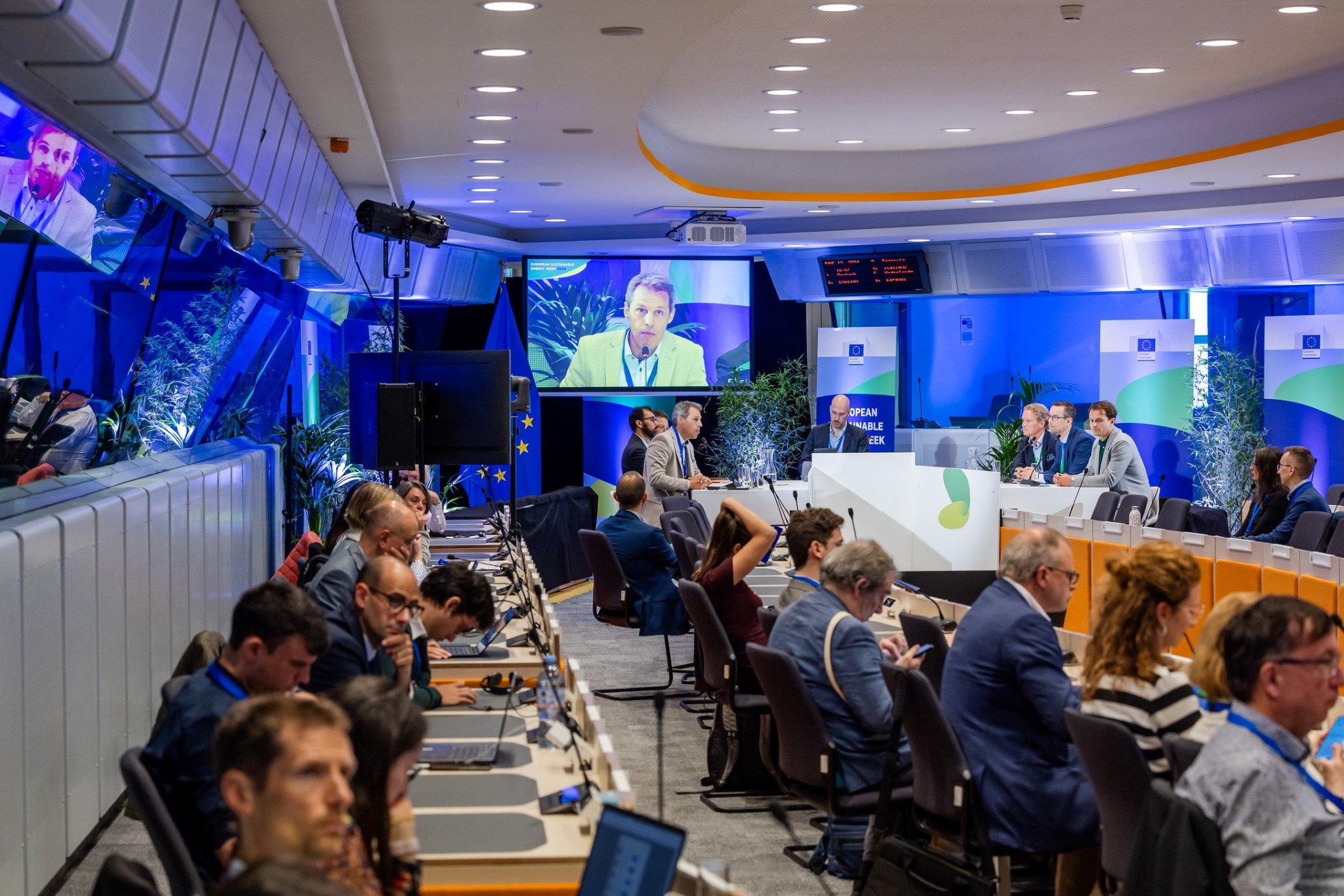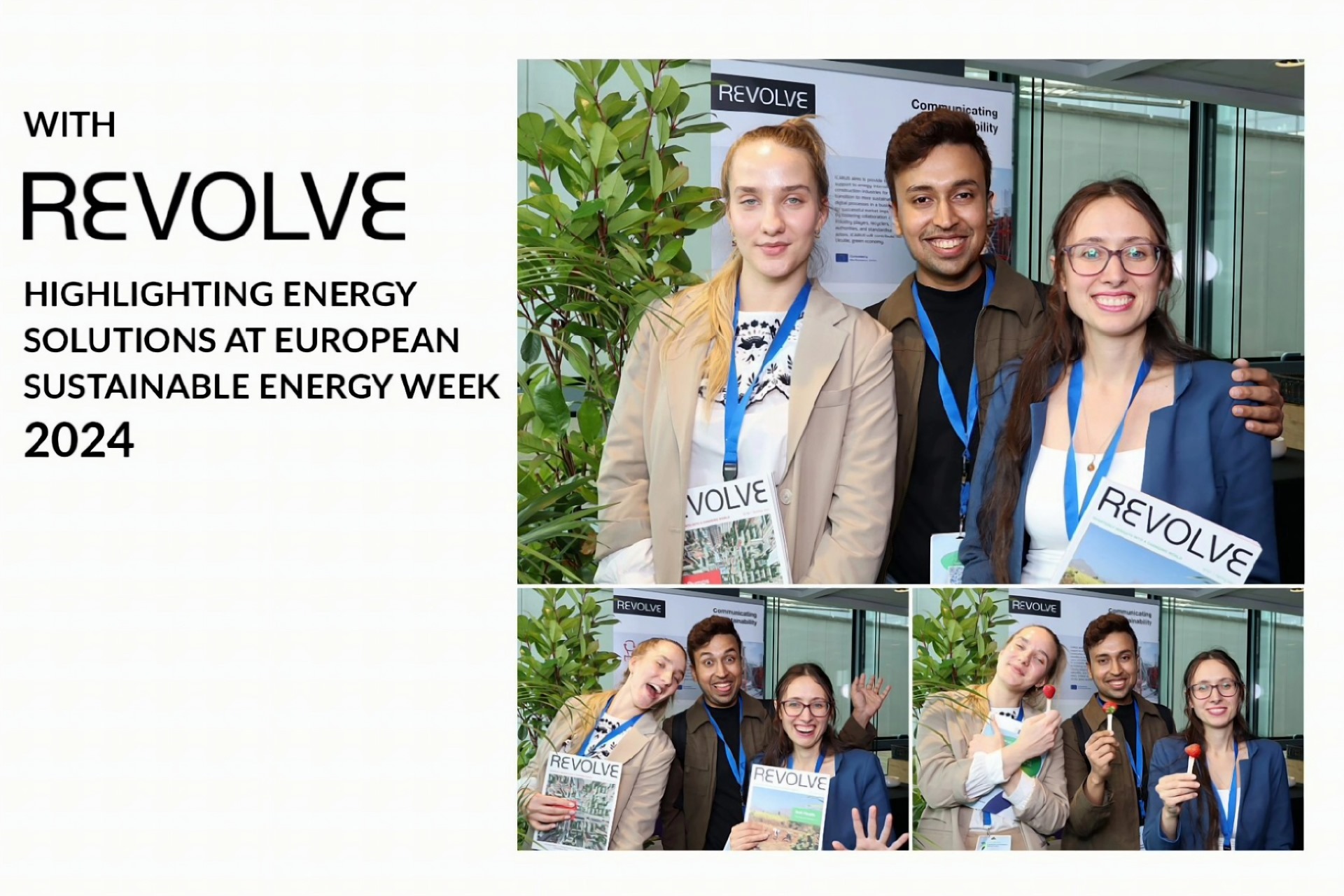Bringing Energy Close to the People
As political priorities shift in Europe, can the Green Deal sustain momentum?
With the green parties’ losses and the general shift towards the right in the European Parliament’s composition, a new era of the European Green Deal begins. Upholding the green momentum in the European energy system might present a bigger challenge for the second Von der Leyen term than anticipated – but it is not an impossible one.
Considering how exceptionally well the Greens did in the 2019 European Parliament elections, the clear loss in seats that they suffered in the 2024 elections may not be as daunting for the EU’s climate agenda and the Green Deal as some argue. Important to keep in mind, however, is that energy policy, like many other policy domains, aims to balance different interests.
The three key objectives can be visualized as pillars of a triangle: competitiveness, security of supply, and climate. That is, the energy ‘trilemma’ of the EU is to secure a stable supply of renewable energy at affordable prices – and with the 2022 energy crisis triggered by the Russian invasion of Ukraine, policy makers shifted their focus to security of supply and the maintenance of low prices.
The three key objectives can be visualized as pillars of a triangle: competitiveness, security of supply, and climate.
The two are, of course, interconnected: right wing parties gaining ground in European politics reflect the citizenry’s rising concerns with issues such housing and inflation – at the cost of emphasis given to climate action.
Von der Leyen’s newly forming Commission will then have to work on the implementation of the Green Deal in a context that is increasingly shaped not just by conservative voices, but also by events that distort the attention given to sustainability.
Securitizing energy
In the current European political-economic landscape, protecting and increasing energy security and independence have – at least in the short term – taken prevalence over long-term sustainable planning.
Academics, especially the Copenhagen school of security studies have long considered what “thinking in terms of security” does to things. Framing issues as a matter of security – may that be national or European – calls for a sense of urgency; an urgency to act and not waste time with political debate and the consideration of other (for example social and environmental) factors.
Excessively underlining energy security on top of ceaseless efforts to remain competitive on the global stage may come at the expense of a climate friendly European approach to energy.
In this sense, excessively underlining energy security, as the past years have pushed political actors to do, on top of ceaseless efforts to remain competitive on the global stage may come at the expense of a climate friendly European approach to energy.
Historically speaking, a security-heavy reading of energy led to the energy infrastructure that we know today: state-controlled, centralized generation facilities, far removed from society – after all, we do expect our states to handle ‘our security.’ These energy systems tend to also be built around fossil fuels due to how readily available and scalable energy sources they once were.

Fossil fuels’ supply chain is, moreover, structured in a way that makes it economically feasible to allow only a few actors to operate on the market – oligopolists, if you will – and as we all know, economic and political influence go hand in hand; the fossil lobby is one that tends to find a way to have its vested interests listened to.
Unsurprisingly, utilizing the potential of renewables is the opposite of what the guardians of the status quo are engaged in. We have to come to terms with the possibility that it is political and institutional, and not technical forces that are halting the EU’s energy transition.
Renewable energy as a democratizing force
While the shadows of the past loom large, there is a way to dismantle even the most structural barriers. For an inclusive energy transition, we have to bring energy close to people so that they can co-create the present and the future of their energy systems. Energy has been a matter of states for far too long, and it is not without its flaws. The 2023 Eurobarometer revealed that more than three quarters of EU citizens identify climate change as a serious problem of our time and yet think that their national government is not doing enough to fight climate change.
So how do we translate citizens’ concern for climate change into action? One element of the solution must be the roll-out of renewables, which – especially if combined with energy communities and smart cities – holds enormous potential to transform the current top-down approach into a resilient, long-lasting one that feeds from the bottom-up support. Renewables promise decentralized, democratic energy production, a greater sense of ownership for people, which helps both to rationalize and to experience sustainable choices.
For an inclusive energy transition, we have to bring energy close to people so that they can co-create the present and the future of their energy systems.
We must empower citizens to act, because their ambition might outpace that of the member states – and the lessons learnt through mastering and sharing one’s own energy are invaluable for conscious behavior society-wide.
All this is undeniably a difficult task. The powerful, such as the fossil fuel industry, bear the costs of climate action, while the benefits trickle in slowly and profit all of us gradually. Yet, those that have not traditionally been in positions of power are finding their voice, like the younger generation though initiatives such as the Young Energy Ambassadors, a cohort that aims to enlighten the youth’s vision in debates around energy. If we continue conversations that create space for plurality and endorse efforts that bypass institutional inertia, the European energy transition might find renewed impetus.

For more from the Youth Energy Ambassadors, read Devesh Mishra’s piece here.
